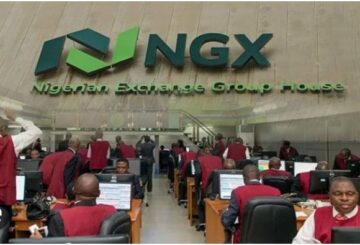
The African Development Bank’s (AfDB) “Fight Covid-19” social bond, the largest social bond to date to be issued in the capital markets, has been listed on London Stock Exchange (LSE) and is now available through its sustainable bond market.
According to a statement, the listing marked an important milestone as the Bank launched its first bond on the LSE.
The over-subscribed transaction, which attracted $4.6 billion of interest in the book and raised an exceptional $3 billion, was launched to alleviate the impact of Covid-19 on Africa’s economies and livelihoods.
The three-year maturity bond, garnered interest from central banks and official institutions, bank treasuries and asset managers including Environment, Social and Governance (ESG) investors.
It disclosed that several high-quality ESG investors actively supported the transaction. These included Affirmative Investment Management (UK), Breckinridge, Columbia Threadneedle (USA), the Government Pension Investment Fund, the International Fund for Agricultural Development, Pension Boards – United Church of Christ, PineBridge Investments, Praxis Impact Bond Fund, TIAA/Nuveen and the United Nations Development Program.
“The international community must work together to successfully tackle the coronavirus pandemic. The UK, along with partners like the African Development Bank and London Stock Exchange Group, is supporting the most vulnerable countries to invest in their own health systems and avoid economic hardship,” International Development Secretary Anne-Marie Trevelyan said about the listing.
“While we invest in areas like vaccine research to help end the pandemic sooner, this private investment through the AfDB, and our support for emergency lending through the IMF, will also help limit its impact on the global economy,” Trevelyan further noted.
The London Stock Exchange, at the heart of London’s vibrant financial hub, is championing forward-looking initiatives aimed at deepening and diversifying the market.
Its dedicated Sustainable Bond Market (SBM) draws innovative issuers and improves access, flexibility and transparency for investors.
Eligible social or sustainability bonds with use of proceeds aligned to mitigating the impact of Covid-19 would be admitted on the Exchange with admission fees waived for an initial period of three-months, the LSE has announced.
Such social and sustainability bonds fund essential services such as healthcare, water and sanitation, supporting employment, or with a link to the relevant UN Sustainable Development Goals.
The CEO, LSE and Group Director of International Development, Nikhil Rathi, said: “We welcome the first bond from African Development Bank to list on our market and support them in their vital efforts to mitigate the impact of Covid-19 across Africa.
“This bond highlights the important role that social and sustainability bonds can play in directing funding to those countries, sectors and people across the world heavily impacted by this pandemic.”
The Bank established its Social Bond framework in 2017 and raised the equivalent of $5 billion through issuances denominated in US dollars, Euro and Norwegian krone.
On his part, the President of the AfDB, Dr. Akinwumi Adesina, said: “We are proud to announce that our first listing on London Stock Exchange is a social bond.
This is only the beginning of a stronger partnership between the African Development Bank and London Stock Exchange. We will mobilise all we can on the capital market to fight the coronavirus in Africa.”
The Bank’s previous activity in the social bond market has seen financing to build hospital capacity, boost access to health and healthcare services, strengthen health systems, provide improved access to water and sanitation, and create jobs across the continent.
Commenting on the listing, Martin Scheck, CEO of The International Capital Market Association or ICMA, said: “We believe Social and Sustainability Bonds can provide an immediately actionable channel for the market to finance projects that directly contribute to alleviating the social and economic impact of the Covid-19 crisis.”


